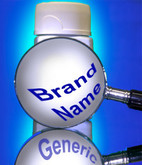Reports
The evolution of switching and substitution of biosimilars in Europe
Switching patients from originator biologicals is often an emotive subject. However, despite reservations by prescribers and payers alike the tide may be finally turning, with Scandinavian countries leading the way [1].
Recommendations for the use of biosimilars in rheumatic diseases
Biological therapies have become a central part of the long-term management of many chronic diseases, including inflammatory rheumatic diseases.
Competition lacking in the Mexican drug market
A report by the Mexican antitrust commission COFECE – Comisión Federal de Competencia Económica finds that off-patent drugs are not generating sufficient competition against the major pharmaceutical companies, which continue to dominate the market.
Regulatory pathways for approval of biological products in Brazil
Up until 2002, Brazil had no specific guidance for biological products. In 2002 guidelines for biological products were published (RDC 80/2002), which had to be followed by both originator biologicals and ‘follow-on biological products’.
Regulation of follow-on biological products in Brazil
The regulatory body for approval of medicines in Brazil is the Brazilian Health Surveillance Agency (Agência Nacional de Vigilância Sanitária, ANVISA) [1]. The agency was created by Law 9782, which was enacted in 1999 [2]. Since then, numerous guidance for biologicals and follow-on biological products have been issued by ANVISA, see Figure 1.
Producing follow-on biological products in Brazil
Retail pharmaceutical sales in Brazil have an average annual growth rate of 12.48% and have increased from US$7.9 billion in 2005 to US$28.02 billion in 2014. In 2008, Brazil was rated as the 10th largest market for pharmaceuticals, but by 2013 the country was ranked at No. 6 and by 2018 it is expected to reach No. 4 in the world [1].
Building trust in biosimilars
How to build trust in biosimilars was a subject highlighted at the Biosimilar Medicines Group’s (EBG) satellite symposium at the 2017 European Association of Hospital Pharmacists conference [1].
FDA looks set to break record for generic drug applications
So far in 2017 the US Food and Drug Administration (FDA) has approved over 630 generic drug applications, and looks set to overtake last year’s record total of 651 approvals.
Interchangeability of biosimilars in the US
The US Food and Drug Administration (FDA) has different requirements for biosimilars depending on whether they are defined as ‘biosimilar’ or ‘interchangeable’ [1].
Interchangeability of biosimilars around the world
There is a lack of harmonization around the world when it comes to how different countries or regions approach interchangeability of biosimilars [1].












